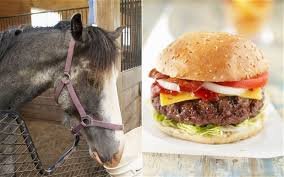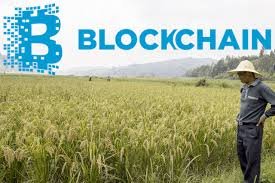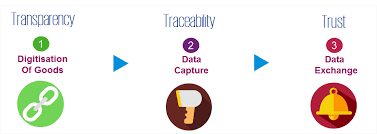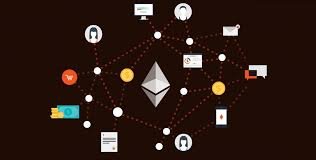
Over the years, flipping through the dailies and listening to the news making the rounds, it comes with an alarming shock the length some people or organization go to keep raking in the billions as profits without bathing an eyelid on the toxic effects of these sharp practices they engage in to make their profits robust. From the horse meat scandal that rocked Europe, to the tainted milk scandal in Asia, mad cow disease scandal in United Kingdom, cases of devastating E. Coli sprouts in Europe to Listeria infected Cantaloupe in the United States,there are replete tragedies which have hit several continents of the world due to one latent cause which have not been totally masked out. All these mentioned cases could only have happened due to the fragmented supply chain management of the agro industry. As rightly put by a reputable authority in the blockchain ecosyetm, "The supply chain is an outdated structure. A structure that emerged as the productive model of the industrial age of the nineteenth century. It has become a collection of rusting links, with producers and consumers stuck in obfuscated commodity-driven relationships that keep them both from fully understanding each other’s needs, the needs of the environments they inhabit, and the needs of fair and ethical labor practices. In a rapidly industrializing world, this model was necessary to move products from point A to point B. But it’s been two centuries, shouldn’t we start moving on?"
What exactly is supply chain management and how does it affect agriculture especially in the aspect of organic farming?

Just like it has been cited in the paragraph above, many players in the agriculture industry are there to maximize profits. As good as this is, it becomes a problem where best practices are shunned in order to keep the profit barn flowing continuously irrespective of how catastrophic it is to man and the ecosystem at large.

With this mad rush gains for gains only an immutable system such as the blockchain can solve this menace. This brings me to the technicality of the blockchain application. Well I raised this topic of Organic Farming and Blockchain as a fitting application in this sector on bitcointalk forum and I have been getting a lot of comments on the impractical application of blockchain to this topic. This shows that it's such an interesting topic that boggles the mind which needs to be properly grasped.
A proper understanding of blockchain answers some of these questions. At its simplest, blockchain allows parties to co-create a permanent, unchangeable and transparent record of exchange and processing, without having to rely on a central authority. It is a secure, shared store of information without centralized control. Through blockchain, the following can be achieved:

- Supply Chain Network which has become a tangled and intricate web that does nothing but feed the monster called corruption in the agro industry, can be made transparent and traceable. Blockchain technology could securely record information and trace products right from the small-scale farm all the way to consumers’ forks. this will further impact the industry by satisfying consumers’ demand for provenance (quality assurance) while also allowing farmers to build their reputations and charge more fair prices by comparing to similar transactions.. The latter benefit paves way for a Gamified Reputation Profile for farmers.

- Blockchain deploys tools such as smart contracts which are actually self governing and devoid of human sentiments and prejudices. This is one of the recent applicability of blockchain which can protect farmers from the risks accompanied with reneged agreements that may result in huge losses in cases where farmer have produced but the other party who was supposed to have bought these produce is no longer honouring his own end of the deal. This causes farmers to sell off their goods at a far cheaper rate especially when these produce have low shelf life typical of most farm produce. With the application of smart contracts, farmers are protected against this unfair business practices
- Blockchain provides a means for the farmers and even buyers of agricultural produce to access a wider spectrum of markets. Due to the border less transactions the blockchain network facilitates, farmers could use this means to crowd source or even transact business across the supply chain breaking new frontiers.
- Blockchain s a technology facilitates faster means of transacting among parties. Through this means, farmers are encouraged to carry out transactions without having to wait for centralized systems of approval characterized with so much bureaucracy and demotivating in nature.
This brings me to a company which has decided to brave the odds with its bold and unique idea of disrupting the organic farming section of the larger whole. Talking about Green World Farm

This company has decided to carve itself out a niche and just focus on the organic aspect of farming and food production which at the moment boasts of just 1% of the whole agriculture industry.What this means is that this is pretty much a sector that is yet to be flooded with competition therefore a viable sector to explore. How has it proposed to achieve this? It's well outlined in its whitepaper. It is going to be operating from two strategic locations, Nigeria and United States (this comes with striking significance) and has gone ahead to acquire its own farm in Nigeria known for its rich agricultural history.
When I initially thought about the idea Green World Farm proposes, I thought it is another misplaced application of blockchain as a technology, not until I did my research and thoroughly read the whitepaper put forward by the team. With the massive power generation of nuclear power plants, the world is aggressively campaigning for greener sources of energy and power production due to the hazards methods like this poses to the global safety of life and biodiversity. The Daichi nuclear plant melt down in Fukushima Japan and Chernobyl in Soviet Ukraine are unforgettable examples.
My point here is that it is possible and already been explored by various organizations by several other sectors. Why should the sub sector of organic farming be different?

Green World Farm presently in its ICO stage has proposed a tokenized system to power this business. With the GWF tokens runing on the Ethereum blockchain. As most people who are familiar with Ethereum network and how it runs, it is actually an open source network which allows the creation of smart contracts and decentralized applications (DApps). The GWF token being an ERC20 token will not only act as a means of exchange on the DApp the GWF team will be releasing as it achieves milestones along its road map, it will serve as the major currency in the GWF ecosystem thereby enhancing its utility function as a token. This of course makes the token valuable to its holders. More information about this can be obtained from their whitepaper.
With GWF operating a decentralized system of organic farming, other farmers irrespective of where they might be located can become part of the GWF ecosystem, transacting their individual businesses across borders and making the vision GWF has conceived a reality. Organic food instead of being a luxury or facing so much impediments in its production processes will then through the activities of GWF become globally accessible.
From my perspective and after studying through several articles and research topics bothering on agriculture and organic farming and looking at the idea Green World Farm is bringing to the the table, I think this is a project that beat and should do remarkably well in the long term. Join their global Telegram group to learn more about this amazing project.
You can contact the author through my various social media
Medium
Twitter
Nice article
Thanks
It's quite a novel idea. But I am concerned with how they intend to achieve this
""Blockchain deploys tools such as smart contracts which are actually self governing and devoid of human sentiments and prejudices. This is one of the recent applicability of blockchain which can protect farmers from the risks accompanied with reneged agreements that may result in huge losses in cases where farmer have produced but the other party who was supposed to have bought these produce is no longer honouring his own end of the deal. This causes farmers to sell off their goods at a far cheaper rate especially when these produce have low shelf life typical of most farm produce. With the application of smart contracts, farmers are protected against this unfair business practices""
Well, the practicability of blockchain is sometimes hindered by the technological advancement of nations. This doesn't in any way discredit the positive effect blockchain can bring to businesses when incorporated
Congratulations @magneto151! You received a personal award!
You can view your badges on your Steem Board and compare to others on the Steem Ranking
Do not miss the last post from @steemitboard:
Vote for @Steemitboard as a witness to get one more award and increased upvotes!